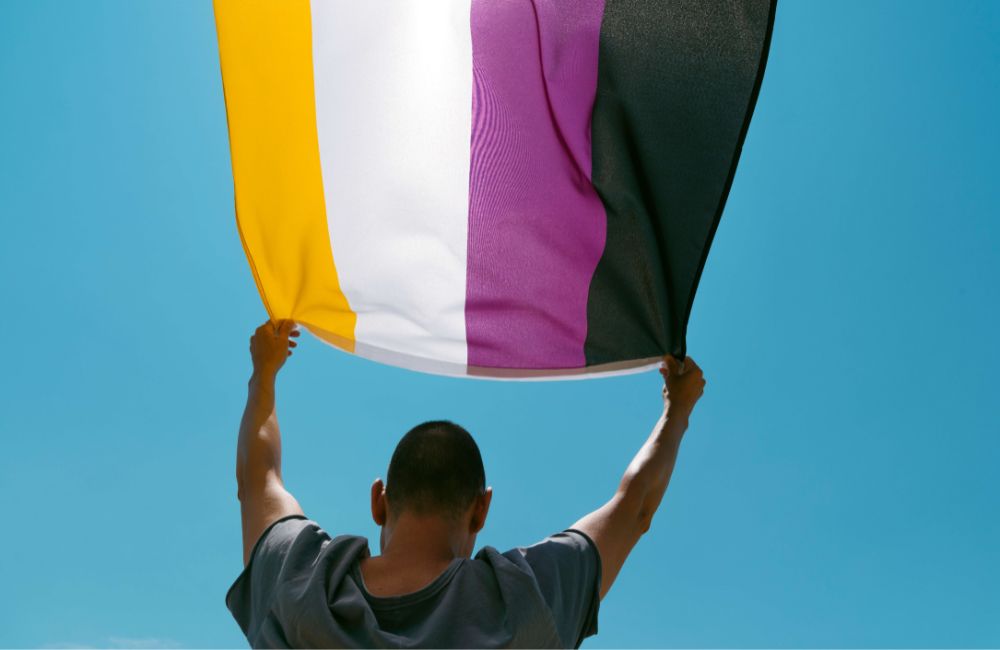**The 14th of July 2025 is International Non-Binary People’s Day, which celebrates people who identify as non-binary across the globe.
We know that minority groups struggle with discrimination and equality. In many countries, there is still no legal recognition for non-binary people. Because of this, it’s essential to take this time to stop and acknowledge these struggles whilst considering ways you can show support. In this article, we’ll cover what it means to be non-binary and how you can be an ally to those around you.
What does ‘non-binary’ mean?
Non-binary is a term that describes people whose gender identities are neither male nor female. Non-binary identities are varied. Some non-binary people might experience their gender as both a man and a woman, or it could be different entirely, not fitting into the binary at all—or somewhere in between.
Being non-binary doesn’t necessarily mean that someone will identify themselves as trans (someone whose gender does not sit with the same sex they are assigned to at birth). There are a variety of terms that someone might use to define their gender experience, including gender fluid, genderless, nongender, bi-gender, gender-variant or third gender.
One of the big ways you can show your support for non-binary people is by finding out which terms they use to define themselves, and respecting this, just as we all deserve.
Understanding gender identity and gender expression
Understanding gender identity and expression can help you gain better knowledge of non-gender identities. Gender expression is how someone outwardly expresses their gender. Gender identity, on the other hand, refers to a person’s experience of their gender, which isn’t concerned with physical attributes or outward expressions of gender. Non-binary people may present themselves in masculine or feminine ways—and this may fluctuate over time.
How to be a non-binary ally
Aiming to be more inclusive in your interactions can go a long way. Sharing information, educating others and standing up against discrimination are all a good start. We’ve put together some more ideas below.
Use inclusive language
Being precise about your language is one way you can begin to be more inclusive. Often, the terms and pronouns we use include gendered cues like ‘she’ ‘he’ ‘ladies and gentlemen’ or ‘Mr’ and ‘Mrs’. To avoid exclusion and promote inclusivity, try to avoid these terms and opt for neutral alternatives like ‘person’ ‘they’ ‘theirs’ and ‘everyone’. Ask others which pronouns they use too. This conversation gives them a chance to speak their voice and be heard. The more you try to practise using gender-neutral terms in your day-to-day, the more natural they become.
Try not to make assumptions
As we mentioned earlier, it might not always be obvious which gender someone identifies as. So try not to make assumptions when talking to others. Using the pronouns above will help you remain inclusive to all.
Advocate allyship
Speak to your college or university about changing documents and policies to include gender-neutral pronouns. You could also suggest awareness-raising events and distribute materials to staff or students. Or you might wish to take action in another way by raising money for a charity like Stonewall, who provide a range of information and support to non-binary people.
HA | Wisdom Wellbeing is here to support
At HA | Wisdom Wellbeing, we’re advocates of inclusivity and diversity. We believe in equality for all, and we hope that we can help colleges and universities across the UK to do the same.




